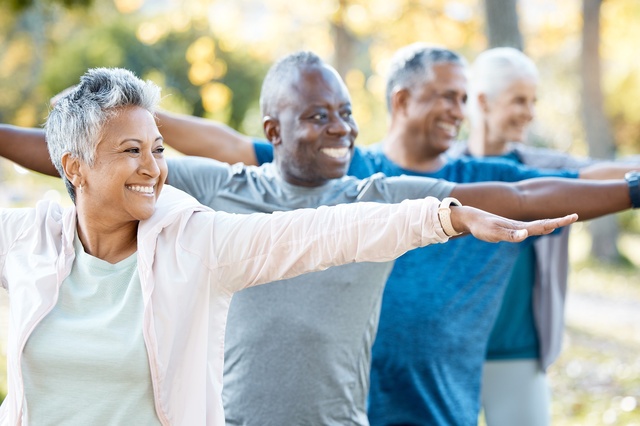
Ways to Improve Your Communication Skills Naturally
Good communication is the foundation of strong relationships, whether in your personal life or at work. But not everyone is born a great communicator—and that’s okay. The good news is, communication is a skill you can develop over time. And the best part? You don’t need fancy classes or expensive books. You can improve your communication skills naturally with simple daily habits.
In this article, we’ll explore practical, natural ways to become a better communicator—whether you’re shy, anxious, or just want to connect better with others.
1. Start by Listening More Than You Speak
The best communicators aren’t always the ones talking the most. They are the best listeners. Listening carefully shows people you care about what they’re saying. It builds trust and helps you respond in a more thoughtful way.
Try this:
When someone speaks to you, don’t interrupt. Instead, make eye contact, nod occasionally, and try to repeat what they said in your own words. This shows you’re paying attention and helps you avoid misunderstandings.
2. Maintain Eye Contact
Eye contact is a small thing that makes a big difference. It shows confidence and helps the listener feel like you’re really present. You don’t need to stare—just make natural, steady eye contact while you talk and listen.
If eye contact makes you nervous, practice with friends or in front of a mirror. Over time, it’ll feel more natural.
3. Practice Speaking Clearly and Slowly
People often rush their words when they feel nervous or excited. Speaking too fast can make your message hard to follow. Instead, take a deep breath and slow down.
When you speak clearly and at a steady pace, people can understand you better. It also makes you appear calm and confident.
Tip: Record yourself talking about your day, then listen to the recording. Do you mumble, rush, or speak clearly? Use what you learn to improve.
4. Use Simple and Honest Language
You don’t have to use big or fancy words to sound smart. In fact, using simple, clear words makes your message easier to understand. Honest communication is always better than trying to impress someone with complicated words.
Example: Instead of saying, “I am experiencing emotional discomfort,” you can just say, “I feel upset.”
5. Read Regularly to Expand Your Vocabulary
Reading helps you learn new ways to express yourself. You don’t need to read academic textbooks—try novels, blogs, or even articles on topics you enjoy. As you read more, you’ll pick up new phrases and sentence styles naturally.
This will make your everyday communication smoother and more colorful.
6. Be Aware of Your Body Language
A lot of communication is non-verbal. That means it comes through your body—your posture, facial expressions, and gestures.
Try to keep an open posture (shoulders back, arms relaxed), smile genuinely, and avoid crossing your arms. These small signals can make you appear more friendly, open, and confident.
7. Ask Open-Ended Questions
If you want to have better conversations, learn to ask open-ended questions. These are questions that can’t be answered with just “yes” or “no.”
Example:
Instead of asking, “Did you have a good weekend?”
Try, “What did you do over the weekend?”
This invites people to share more, which helps keep the conversation flowing.
8. Practice Active Communication Daily
You don’t need a public stage to practice communication. Use everyday opportunities: talk to the cashier, chat with a colleague, or call a friend instead of texting.
The more you practice, the more comfortable you’ll become. And over time, these small moments will naturally improve your skills.
9. Be Present in Conversations
Many people make the mistake of thinking about what they’ll say next instead of truly listening. Being present means focusing on the current moment and giving the speaker your full attention.
Put away your phone. Avoid looking around the room. Listen with your heart, not just your ears.
10. Handle Misunderstandings Calmly
It’s natural to face disagreements or miscommunications sometimes. But how you handle them shows your communication strength.
Instead of reacting emotionally, take a moment to breathe. Then, calmly explain your point of view and ask the other person to share theirs. Aim to understand, not just to be right.
11. Join Group Activities That Involve Conversation
Want a fun way to boost communication skills? Join a book club, hobby group, or a public speaking club like Toastmasters. These spaces allow you to practice talking in front of others in a supportive way.
You’ll get feedback, make new friends, and grow more confident over time.
12. Be Patient With Yourself
Improving communication skills takes time. You might still feel nervous speaking up in a group, or you may forget what you planned to say. That’s okay.
Celebrate small wins, like making a new friend, asking a question in class, or having a meaningful talk with a loved one. Every conversation is a chance to grow.
Final Thoughts
You don’t need to change who you are to be a good communicator. The goal isn’t to become the loudest person in the room—it’s to connect, understand, and express yourself honestly.
With regular practice and patience, you can improve your communication skills naturally. Remember: speak clearly, listen deeply, and be yourself.
Frequently Asked Questions (FAQs)
1. Can introverts become good communicators?
Yes! Being introverted doesn’t mean you can’t communicate well. In fact, introverts often make excellent listeners and deep thinkers, which are key parts of communication. With practice, introverts can become very effective communicators.
2. How long does it take to improve communication skills?
It depends on how often you practice, but most people see improvement in a few weeks with consistent effort. The more you engage in real conversations and apply the tips above, the faster you’ll grow.
3. What’s the biggest mistake people make when communicating?
One of the biggest mistakes is not listening actively. People often focus on their response rather than understanding the other person. This leads to shallow conversations and missed connections.
4. How can I reduce nervousness when speaking to others?
Take deep breaths, prepare your thoughts beforehand, and practice in safe spaces (like with friends or family). The more you speak up, even in small situations, the more your confidence will grow.
5. Can improving communication skills help in my career?
Absolutely. Strong communication skills are one of the most valued qualities in the workplace. Whether it’s leading a team, giving a presentation, or dealing with clients—clear and confident communication opens doors to success.
Sign up with your email and always get notifed of zerodevicesnet Lifestyles latest news!






